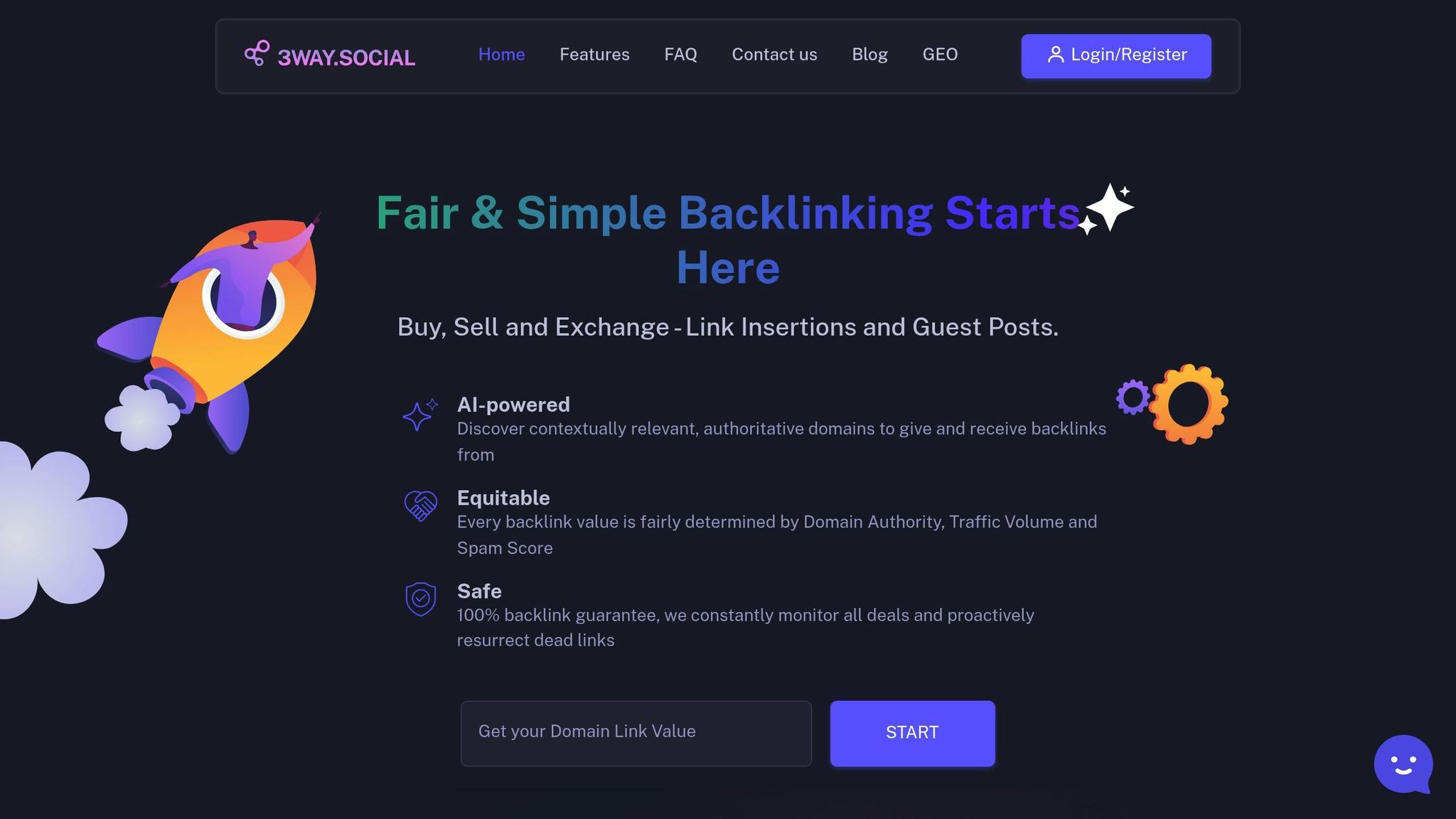Last Updated on December 2, 2025 by Becky Halls
Niche directories are specialized platforms that focus on listing businesses within specific industries or markets, offering targeted, high-quality backlinks. These directories play a key role in improving search engine rankings by signaling relevance, trust, and authority to search engines. Unlike general directories, niche directories have stricter editorial standards, ensuring only credible businesses are listed. Here’s why they matter:
- Relevance: Links from niche directories help search engines understand your business’s expertise in a specific field.
- Trust: Many niche directories verify credentials, adding credibility to your business.
- Indexation: They improve crawlability, making it easier for search engines to discover and rank your website.
- Domain Authority: Listings in high-authority directories boost your site’s credibility through link equity.
For best results, focus on directories relevant to your industry, create unique descriptions for each submission, and avoid low-quality, spammy directories. Tools like AI-powered platforms can simplify this process by identifying the most effective directories and ensuring quality link-building strategies.
How to Easily Get Niche Related Local Business Directories
How Niche Directories Impact SERP Rankings
Niche directories play a crucial role in shaping search rankings through three main factors that search engines evaluate: relevance signals, domain authority, and technical benefits like indexation. By understanding these dynamics, you can tap into the potential of directories to boost your SEO efforts. Let’s start with how relevance and domain authority come into play.
Relevance Signals and Domain Authority
Search engines assess the connection between your website and the directories linking to it. When a well-regarded industry directory links to your site, it highlights your business’s expertise and relevance within a specific niche.
But it’s not just about the link. Search engines also analyze the semantic association. Being listed alongside other reputable companies in your field sends a clear message about your business’s industry category. This can improve your chances of ranking for related keywords, as search algorithms better understand your niche.
Domain authority adds another layer to this process. Many niche directories have built trust with search engines over years by consistently providing accurate and reliable information. When these high-authority directories link to your site, they pass on some of that trust, boosting your site’s credibility through link equity.
Topical clustering – where directories group businesses by industry – further strengthens rankings. When multiple businesses in the same directory rank well for similar keywords, it creates a pattern that search engines recognize. This can lead to a feedback loop, improving visibility for all businesses in that directory. Beyond relevance, trust signals also play a key role in SEO success.
Trust and Quality Signals
Unlike generic directories, niche directories often verify credentials, adding an extra layer of trust. For example, legal directories confirm bar admissions, medical directories check licensing, and professional directories verify memberships in good standing. These verification steps signal to search engines that your business is legitimate and credible.
Editorial standards also contribute to trust. High-quality directories enforce submission guidelines, conduct reviews, and actively moderate listings. This level of scrutiny ensures that only credible businesses are listed, which increases the value of backlinks from these directories.
Some niche directories go a step further by incorporating review systems or integrating with external review platforms. Verified customer reviews within a specific industry can amplify trust signals and further enhance your search rankings.
Transparency is another factor search engines consider. Directories that require complete business information – like physical addresses, phone numbers, and detailed service descriptions – help establish legitimacy. These trust signals work hand in hand with technical benefits like improved indexation and crawlability.
Indexation and Crawlability
In addition to boosting relevance and trust, niche directories help with indexation and crawlability, making it easier for search engines to find and rank your website. Directories act as pathways for search engine crawlers, guiding them to your site and speeding up the indexing process.
The structured format of directory listings provides clear, consistent data about your business. Accurate NAP (Name, Address, Phone) information across multiple directories reinforces your legitimacy and helps search engines understand your location and service areas.
Directories also create permanent crawl paths. Instead of relying solely on direct traffic or mentions on social media, these pathways ensure that search engine crawlers can repeatedly access your site through reliable links.
Finally, the association by proximity effect comes into play. When your business appears alongside other credible, vetted companies in the same directory, search engines perceive a collective credibility. This can enhance your authority profile and positively impact your rankings.
Best Practices for Using Niche Directories
How to Optimize Directory Submissions
When submitting to niche directories, focus on creating unique descriptions that highlight your value. Use relevant keywords naturally, but don’t overdo it – your goal is to communicate what makes your business stand out. Each listing should feel tailored, delivering a clear and distinct message to maximize its impact.
Steer clear of duplicating content across multiple directories. Repeating the same descriptions can weaken your backlink quality and may even result in penalties from search engines.
sbb-itb-88880ed
Niche vs General vs Local Directories: SEO Comparison
Different types of directories play unique roles in SEO. Each serves a specific purpose and offers distinct benefits based on your business goals and audience. This breakdown highlights how niche, general, and local directories cater to different SEO needs.
SEO Impact Comparison Table
| Directory Type | Relevance Score | Trust Signals | Link Authority | Targeting Precision | Competition Level | Best Use Case |
|---|---|---|---|---|---|---|
| Niche Directories | High | High | Medium | Excellent | Medium | Industry expertise, specialized services |
| General Directories | Medium | Medium | High | Poor | High | Brand awareness, broad visibility |
| Local Directories | High | High | Medium | Excellent | Medium | Geographic targeting, local businesses |
Niche directories stand out for their relevance and precise targeting, making them ideal for businesses looking to build industry authority. General directories, on the other hand, offer broader link authority but face challenges with relevance and high competition. Local directories provide strong geographic targeting, making them essential for businesses focused on local markets.
Backlink quality differs across these directory types. Niche directories often provide highly relevant backlinks, which search engines value more than generic links. A backlink from a trusted industry-specific directory carries more weight than one from a general business listing.
Competition levels also vary. General directories, like the now-defunct DMOZ, historically attracted massive submission volumes, making acceptance a challenge. In contrast, niche directories typically have fewer submissions, improving your chances of being listed prominently.
When to Use Each Directory Type
The table above helps pinpoint the best use cases for each directory type:
- Niche directories are ideal for businesses aiming to establish authority in specific industries. They’re particularly effective for B2B companies, specialized services, and businesses with unique expertise. The highly targeted audience often results in better conversion rates from directory traffic.
- General directories work well for increasing brand visibility and diversifying your backlink profile. Though their direct SEO impact has diminished over time, high-authority general directories with editorial standards can still add value.
- Local directories should be a priority for businesses serving specific geographic areas, such as restaurants, retail stores, and contractors. Many local directories integrate with map services and voice search platforms, making them critical for local SEO.
A thoughtful strategy is key. Start with niche directories to build credibility and authority, then add local directories for geographic reach. General directories can round out your efforts by contributing to overall link diversity. Allocate your budget wisely – niche directories often deliver the best ROI, followed by local directories for location-based businesses. General directories should receive a smaller portion of your investment unless brand awareness is your primary focus.
Using AI Tools for Directory-Based Link Building
Boosting your rankings on search engine results pages (SERPs) has become increasingly tied to smarter directory selection and higher-quality links – and this is where AI tools shine. Instead of spending hours manually researching directories, AI-powered platforms now handle the heavy lifting. These tools automate discovery, match websites with relevant opportunities, and streamline the entire link-building process.
The main hurdle with traditional directory link building has always been finding directories that align with your industry while steering clear of low-quality or spammy listings. Search engines are now much better at spotting unnatural link patterns, making manual vetting less effective and far more time-consuming.
Modern AI tools take the guesswork out of the equation. By analyzing thousands of data points, they identify directories that genuinely add SEO value. They assess factors like domain authority, editorial standards, industry relevance, and the quality of link placement. This automation transforms directory link building from a gamble into a reliable strategy. Platforms like 3Way.Social are leading the charge in using AI to optimize directory-based link building.
How 3Way.Social Supports Directory SEO

3Way.Social’s AI-driven platform simplifies directory-based link building by focusing on automation and quality. Its domain-matching algorithms help pinpoint directories that align with your website’s industry, content, and authority level.
Unlike traditional directory submissions, 3Way.Social emphasizes equitable link exchanges instead of one-way links. This approach creates a more natural link profile, which search engines are more likely to reward. By automating these exchanges, the platform helps establish trust and relevance signals that contribute to better SERP rankings. Essentially, with 3Way.Social, you’re building partnerships with legitimate websites in your industry rather than just paying for directory placements.
One standout benefit of this AI-powered strategy is the use of permanent do-follow links. These links retain their SEO value over time, unlike temporary or nofollow directory listings. The platform also ensures that directory partners meet strict standards for domain authority, content quality, and editorial oversight.
The AI system doesn’t stop at link creation. It continuously monitors your directory links, identifying opportunities to refine your link portfolio. If a directory’s quality drops or if better options emerge in your niche, the platform suggests adjustments to keep your strategy on track.
Key Features for Directory Link Building
3Way.Social offers tools and features that take directory link building to the next level:
- Advanced link diversification: The platform ensures your link portfolio is well-rounded by avoiding over-reliance on any single directory type or industry category. This diversification strengthens your SEO strategy.
- Vetted SEO network: The platform works with directory owners and professionals who maintain high editorial standards. Each partner is evaluated for domain authority, content quality, and compliance with search engine guidelines, reducing the risk of associating with low-quality directories.
- Quality control filters: Automation screens directories based on criteria like age, editorial policies, link placement methods, and past SEO performance. This saves you the time and effort of manually researching each opportunity.
- User-friendly dashboard: The dashboard provides a clear view of your directory link-building progress. You can track which directories have accepted your submissions, monitor the SEO impact of new links, and identify areas for further improvement. Metrics like domain authority growth and changes in organic traffic are also displayed.
- Flexible exchange options: Whether you want to focus on a few high-authority niche directories or expand your reach across multiple industries, the platform adapts to your specific goals and budget.
- Guest posting integration: Some directories offer content collaboration opportunities, allowing you to contribute expert insights while securing valuable backlinks. This not only boosts your link authority but also enhances your reputation as a thought leader in your field.
Conclusion: Getting the Most from Niche Directories
Niche directories are one of the most effective yet often overlooked tools in the SEO playbook. While many businesses focus their efforts on high-authority general directories or local listings, the real value lies in industry-specific platforms that deliver targeted relevance and attract highly qualified traffic.
Success with niche directories isn’t just about getting your name on a list – it’s about choosing the right directories and optimizing your listings. In this case, quality always beats quantity. A well-placed listing in a reputable, industry-relevant directory with strong editorial oversight can easily outperform dozens of entries in low-value general directories.
These industry-specific listings signal to search engines that your site is an active participant in relevant conversations, helping to establish your authority within your niche. With search algorithms increasingly prioritizing topical relevance, this approach is more important than ever.
Instead of relying on outdated manual research methods, tools like 3Way.Social streamline the process. These AI-powered platforms analyze critical metrics in minutes, connecting your site with high-quality directories that offer permanent do-follow links and balanced link exchanges. This creates a natural link profile that search engines are more likely to reward.
Key Takeaways
To make the most of niche directories, combine strategic planning with smart technology. Focus your efforts on directories that cater specifically to your industry rather than spreading yourself thin across general platforms. Look for directories with active editorial management, regularly updated content, and strong domain authority in your niche.
Automation is a game-changer for directory link building. Platforms like 3Way.Social take the guesswork out of the equation, using AI to pinpoint the best opportunities while ensuring all links meet high-quality standards. By prioritizing permanent do-follow links and diverse link profiles, these tools help create sustainable SEO value.
Keep in mind that directory SEO is a long-term strategy, not a quick fix. The best results come from consistent, high-quality submissions rather than chasing volume. Regularly monitor your directory links, ensure your listings stay accurate, and be ready to adapt your approach as your industry evolves.
Think of directory submissions as one piece of a larger SEO puzzle. When combined with strong content, technical optimization, and other link-building efforts, niche directories can significantly boost your rankings and drive targeted traffic to your site. By aligning your directory strategy with these broader goals, you’ll strengthen your authority within your industry and build lasting SEO momentum.
FAQs
What makes niche directories better for SEO than general directories?
Niche directories can give your SEO efforts a meaningful edge by targeting specific industries or audiences. These directories provide highly relevant backlinks, which not only boost your website’s credibility but also help search engines grasp how your business aligns with certain topics or markets.
Compared to general directories, niche directories often do a better job at improving local visibility. They send stronger relevance signals to search engines, which can contribute to better rankings on search engine results pages (SERPs). Using these directories wisely can strengthen your website’s authority and help you connect with the right audience.
How can I choose the best niche directories to improve my website’s SEO?
When choosing niche directories, aim for those that are closely tied to your industry and maintain a solid reputation. Directories with high domain authority, thorough manual review processes, and consistent upkeep are key to ensuring credibility and steering clear of spammy links.
It’s also worth focusing on directories that provide comprehensive profile options and are tailored for local SEO. These features can enhance your search rankings and strengthen backlink quality. Make sure the directory aligns with your business objectives and appeals to your target audience to get the most out of your SEO efforts.
How can AI platforms like 3Way.Social improve directory-based link building for better SEO results?
AI platforms like 3Way.Social make directory-based link building easier by pinpointing high-quality, niche-specific directories and automating the process of acquiring backlinks. These tools evaluate website authority, ensure relevance, and simplify outreach, helping you save time while improving the quality of your links.
With AI, you can prioritize building permanent do-follow links and creating a more diverse backlink profile. This approach is key to improving SERP rankings, driving more traffic, and boosting your domain authority. As a result, directory-based link building becomes a more streamlined and impactful part of your SEO strategy.



